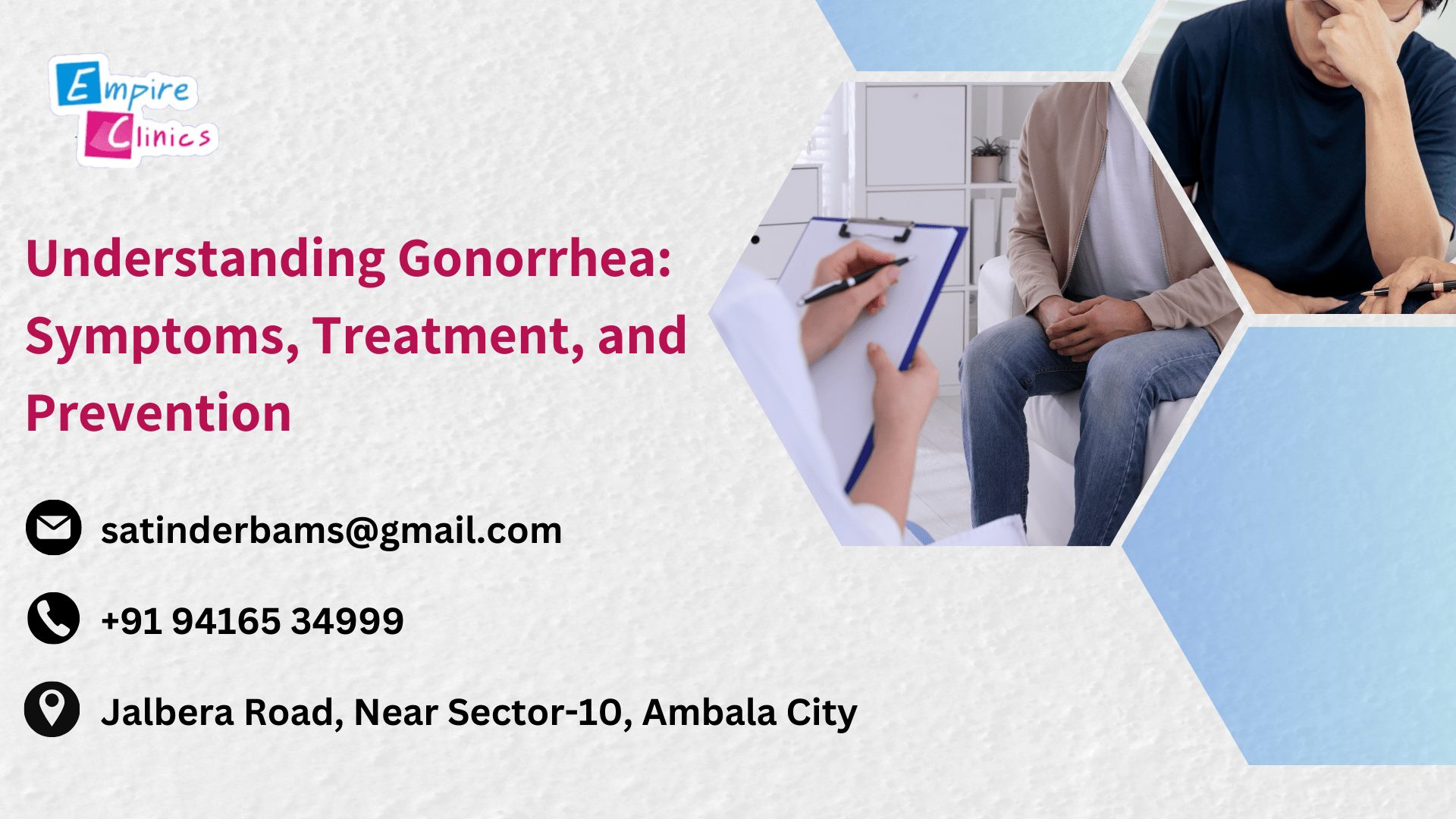Introduction
Gonorrhea is a sexually transmitted infection (STI) caused by the bacterium Neisseria gonorrhoeae. It can infect both men and women and is primarily spread through unprotected vaginal, oral, or anal sex with an infected person.
Table of Contents
Symptoms
- Men: Symptoms may include painful urination, discharge from the penis (yellow, white, or green), and swollen testicles.
- Women: Symptoms can be mild or absent but may include painful urination, increased vaginal discharge, and vaginal bleeding between periods.
Complications
If untreated, gonorrhea can lead to serious health problems:
- In women, it can cause pelvic inflammatory disease (PID), which can lead to infertility.
- In men, it can cause epididymitis, which may lead to infertility.
- Both genders can experience disseminated gonococcal infection (DGI), a severe infection that can affect joints, skin, and other organs.
Diagnosis and Treatment
- Diagnosis is usually done through urine tests, swab tests, or a combination.
- Gonorrhea is typically treated with antibiotics. It's important to complete the full course of treatment prescribed by a healthcare provider to ensure the infection is completely cured.
Prevention
- Safe Sex: Use condoms consistently and correctly during sexual activity.
- Regular Screening: Get tested regularly for STIs, especially if sexually active with multiple partners or a new partner.
- Limit Partners: Limit the number of sexual partners and choose partners who have been tested and are free from STIs.
Have any questions, contact us now
Conclusion
Gonorrhea is a common STI that can be effectively treated with antibiotics if diagnosed early. Practicing safe sex and getting regular screenings are crucial steps in preventing the spread of gonorrhea and maintaining sexual health.
For more detailed information, consult healthcare professionals or trusted medical websites like the Centers for Disease Control and Prevention (CDC) or the World Health Organization (WHO).







